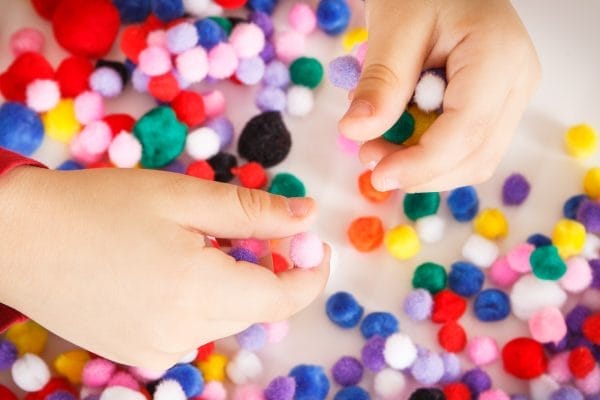Exploring the Teenage Brain: Understanding Emotions, Decision-Making, and More
Remember being a teenager? For some of us, those years are not too far behind, while for others, they might seem like a distant memory. Regardless of where we stand today, the teenage years are a period of intense growth, not just physically but mentally as well. This is largely due to the fascinating changes happening in the teenage brain.
Today, we’re diving deep into the world of teenage brain development, shedding light on some intriguing teenage brain facts, and exploring how the teenage brain deals with emotions and decision-making. So, grab a comfy seat, and let’s embark on this enlightening journey together.

The Wonder Years: Understanding Teenage Brain Development
![]()
The teenage brain is a marvel of nature. It’s not just an adult brain in a smaller package; it’s a brain in the midst of a significant transformation. This period of brain development is both fascinating and critical for shaping the person that a teenager will become. Here’s what you need to know about teenage brain development:
- Neuroplasticity: During the teenage years, the brain is highly plastic, meaning it’s capable of forming new neural connections at an impressive rate. This plasticity makes it an ideal time for learning and acquiring new skills.
- Pruning: As teens grow, their brains begin to prune away neural connections that are no longer needed, making the brain more efficient by strengthening the connections that are used most frequently.
- Prefrontal Cortex Development: The prefrontal cortex, which is responsible for decision-making, impulse control, and self-regulation, is one of the last areas of the brain to mature. This development continues into a person’s mid-20s.
Understanding these key aspects of teenage brain development can help us appreciate the challenges and opportunities that teenagers face during these transformative years.
The Emotional Rollercoaster: Teenage Brain and Emotions
![]()
Have you ever wondered why teenagers seem to live on an emotional rollercoaster? Well, it turns out that there’s a neurological basis for this. The teenage brain is undergoing significant changes, not just in how it thinks, but also in how it feels. Here are some insights into the teenage brain and emotions:
- Limbic System Activity: The limbic system, which plays a key role in processing emotions, is particularly active during the teenage years. This heightened activity can lead to intense emotional experiences.
- Developing Prefrontal Cortex: Since the prefrontal cortex (which helps regulate emotions) is still developing, teenagers might not always handle their emotions in the most effective way. This can lead to mood swings and impulsive behavior.
- Seeking Rewards: The teenage brain is wired to seek out rewarding experiences, which can sometimes mean taking risks without fully considering the consequences.
Recognizing the underlying neurological factors can help us be more empathetic towards the emotional ups and downs that teenagers experience.
Decisions, Decisions: Teenage Brain Development and Decision-Making
![]()
Decision-making during the teenage years can often seem perplexing to adults. Why do teenagers make the choices they do? A peek into the workings of the teenage brain offers some answers:
- Risk and Reward: The teenage brain’s heightened sensitivity to reward often overshadows the potential risks involved in a decision. This imbalance can lead to risky behaviors, such as experimenting with drugs or alcohol.
- Social Influence: The opinion of peers can significantly impact a teenager’s decision-making process, sometimes more so than the views of parents or other adults.
- Experience vs. Impulse: While the teenage brain is capable of making well-reasoned decisions, the pull of immediate gratification and emotional impulses can sometimes override logical thinking.
Understanding the complexities of teenage brain development and decision-making can help adults provide better guidance and support to teenagers as they navigate these critical years.
Empowering Teens: Fostering Healthy Brain Development
![]()
Knowing what we do about the teenage brain, how can we support teenagers in their development? Here are some strategies:
- Encourage Learning: Take advantage of the brain’s plasticity by encouraging teens to learn new skills and pursue their interests.
- Promote Healthy Habits: Sleep, nutrition, and exercise can all have a positive impact on brain development.
- Provide Emotional Support: Be there to listen and offer guidance when needed, helping teens navigate their emotions and decisions.
- Set Boundaries: Clear and consistent boundaries can help teenagers understand expectations and develop self-discipline.
By adopting these approaches, we can help create an environment that nurtures the teenage brain, helping teenagers thrive during these formative years.
Frequently Asked Questions
![]()
Why do teenagers take more risks than adults?
Teenagers are more likely to take risks because their brains are still developing, especially the part that controls impulses and considers consequences. They’re also trying to find their identity and might be influenced more by peer pressure.
Why do teenagers have mood swings?
Mood swings in teenagers are often due to hormonal changes that affect the brain’s chemistry. The rapid development and changes in the brain can also make emotions feel more intense.
Why do teenagers need more sleep?
During adolescence, the brain goes through a lot of changes and growth, which can be exhausting. Teenagers need more sleep to help their bodies and brains develop properly. Plus, their internal clocks shift, making them want to stay up late and sleep in.
Can playing video games affect a teenager’s brain?
Yes, playing video games can affect a teenager’s brain, but it’s not all bad. While excessive gaming can lead to problems with attention and social skills, moderate gaming can improve hand-eye coordination, problem-solving skills, and multitasking abilities.
Why is it hard for teenagers to concentrate?
The part of the brain responsible for concentration is still developing in teenagers. Hormonal changes can also affect their ability to focus. Plus, with social media and technology, there are more distractions than ever before.
How does stress affect a teenager’s brain?
Stress can have a significant impact on a teenager’s brain, affecting memory and emotional regulation. Chronic stress can even alter brain development, leading to issues with anxiety and depression. It’s important for teenagers to learn healthy stress management techniques.
Why is peer pressure so powerful for teenagers?
Peer pressure is powerful because the social part of a teenager’s brain is developing rapidly. They’re becoming more aware of others’ opinions and want to fit in. This desire to be accepted can make them more susceptible to peer pressure.
How does lack of physical activity affect the teenage brain?
Lack of physical activity can negatively affect the teenage brain, leading to issues with mood, memory, and cognitive function. Regular exercise is important as it helps release chemicals in the brain that improve mood and cognitive abilities.
Can a poor diet affect a teenager’s brain development?
Yes, a poor diet can affect a teenager’s brain development. Nutrient-rich foods support brain growth and development, while a diet high in processed foods and sugars can negatively impact cognitive function and emotional regulation.
Why is social media so addictive for teenagers?
Social media can be addictive because it activates the brain’s reward system. Teenagers are especially sensitive to this reward system and the social validation that comes from likes and comments. This can make social media particularly enticing and hard to resist for them.
Conclusion: Celebrating the Teenage Brain
![]()
The teenage years are a time of significant growth and change, not just physically but mentally as well. By understanding the complexities of teenage brain development, we can better appreciate the challenges and opportunities that teenagers face. From navigating the emotional highs and lows to making decisions in the face of peer pressure, teenagers are doing their best to find their way. As parents, educators, and mentors, it’s our job to support them through this journey, armed with knowledge and empathy. Let’s celebrate the teenage brain for what it is—a work in progress, full of potential and promise.





